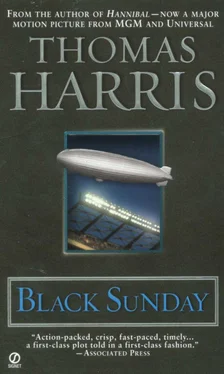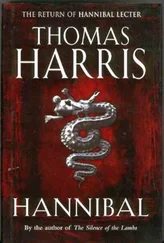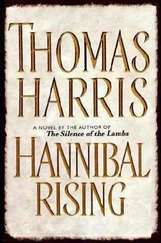“Believe me, Major, I do not want to run.”
Only a serving counter separated the kitchen area from the living room. Kabakov could watch him all the time. He nodded.
“First there was the American,” Muzi said at the refrigerator.
“The American?”
Muzi opened the refrigerator door and he saw the device for an instant before the explosion blew him piecemeal through the kitchen wall. The room heaved, Kabakov turning in the air, blood flying from his nose, falling, shattered furniture rattling around him. Blackness. A ringing silence and then the crackle of flames.
The first alarm went in at five after eight. The fire dispatcher called it “a four-brick, seventy-five by 125, fully involved, Engine 224, Ladder 118 and Emergency Service responding.”
Police teleprinters rattled in the stationhouses, printing this message:
SLIP 12 0820 HRS 76 PRECINCT REPORTS SUSPICIOUS EXPLOSION AND FIRE 382 VIN-CENT ST. TWO DOAS TO KINGS COUNTY HOSP OPR 24 ZZZZZZZZZZZZZZZZZZZZZZZZZZ
The paper feed clanked twice, the carriage returned, then this message:
SLIP 13 0820 HRS CQN SLIP 12 ONE DOA ONE INJURED AUTH LONG ISLAND COLLEGE HOSP OPR 24 ZZZZZZZZZZZZZZZZZZZZZZZZZZ
Reporters from the Daily News, New York Times, and AP were waiting in the corridor of Long Island College Hospital when the fire marshal came out of the room red-faced and angry. Beside him were Sam Corley and a deputy chief. The fire marshal cleared his throat.
“I think it was a gas explosion in the kitchen,” the fire marshal said, looking away from the cameras. “We’re checking it out.”
“IDs?”
“Only on the dead guy.” He consulted the slip of paper in his hand. “Benjamin Muzi, or maybe you say it ‘Muzzy.’ Community relations will give it to you.” He brushed past the reporters and stalked out. The back of his neck was very red.
THE BOMB THAT KILLED BENJAMINMuzi on Thursday morning had been placed in the refrigerator twenty-eight hours before by Muhammad Fasil, and it had almost cost Fasil his hand before a detonator was ever stuck into the plastic. For Fasil had made an error, not with the explosive, but with Lander.
It had been nearly midnight Tuesday when Lander, Fasil, and Dahlia secured the boat and it was almost two a.m. when they arrived at Lander’s house with the plastic.
Dahlia could still feel the boat moving under her as she walked into the house. She fixed a quick hot meal and Fasil wolfed it down at the kitchen table, his face gray with fatigue. She had to take Lander’s food into the garage. He would not leave the plastic. He had opened a bag and lined up six Madonnas on his workbench. Like a raccoon with a clam, he turned one in his hand and sniffed and tasted it. It must be Hexogen of Chinese or Russian manufacture mixed with TNT or kamnikite and some kind of synthetic rubber binder, he decided. The bluish-white substance had a faint smell that touched the back of the nasal passages, like the smell of a garden hose left in the sun, the smell of a body bag. Lander knew he must pace himself to get everything done in the remaining six weeks before the Super Bowl. He put down the statuette and forced himself to sip his soup until his hands were steady. He hardly glanced at Dahlia and Fasil as they came into the garage, Fasil popping an amphetamine tablet into his mouth. The guerrilla started for the workbench and the row of Madonnas, but Dahlia stopped him with a touch on the arm.
“Michael, I need a half kilo of plastic, please,” she said. “For what we were discussing.” She spoke as a woman speaks to her lover, leaving things half said in the presence of a third person.
“Why don’t you shoot Muzi?”
Fasil had been under a strain for a week guarding that plastic on the ship, and his bloodshot eyes narrowed at Lander’s indifferent tone. “Why don’t you shoot Muzi?” he mimicked. “You don’t have to do anything, just give me the plastic.” The Arab moved to the workbench. Lander’s arm blurred with speed as he brought the electric saw off the bottom shelf and pulled the trigger, the shrieking blade a half-inch from Fasil’s reaching hand.
Fasil stood very still. “I’m sorry, Mr. Lander. I meant no disrespect.” Carefully, carefully. “We may not get a shot. I want to cover every eventuality. Your project must not be interrupted.”
“All right,” Lander said. He spoke so quietly Dahlia could not hear him over the sound of the saw. He released the trigger and the blade whirred to a stop, each black tooth distinct. Lander cut a Madonna in two with a knife. “You have a detonator and wire?”
“Yes, thank you.”
“Will you need a battery? I have several.”
“No, thank you.”
Lander turned back to his work and did not look up as Dahlia and Fasil drove away in his car, heading north toward Brooklyn to arrange the death of Muzi.
WCBS “Newsradio 88” broadcast the first bulletin on the explosion at eight thirty a.m. Thursday and confirmed Muzi’s identity by nine forty-five. Now the deed was done. The last possible connection between him and the plastic was cut. Thursday was beginning auspiciously. Lander heard Dahlia come into the workshop. She brought him a cup of coffee. ”Good news,“ he said.
She listened carefully as the newscast recycled. She was eating a peach. “I wish they would identify the injured one. There’s a fair chance it’s the Greek.”
“I’m not worried about the Greek,” Lander said. “He only saw me once and he didn’t hear what we said. Muzi showed no respect for him. I doubt if he trusted him at all.”
Lander paused in his work to watch her as she leaned against the wall eating the peach. Dahlia relished fruit. He liked to see her absorbed in a simple pleasure. Displaying appetite. It made him feel that she was uncomplicated, unthreat ening, that he moved around her unseen. He was the benign bear watching the camper unload the goodies in the firelight. When she first came to him, he had often turned suddenly to look at her, expecting to see malice or cunning or distaste. But she was always the same—insolence in her posture and welcome in her face.
Dahlia was aware of all this. She appeared to be watching with interest as he turned back to the wiring harness he was making. Actually she was worrying.
Fasil had slept most of yesterday and most of this morning. But soon he would awaken. He would be elated at the success of his device, and he must be restrained from showing it. Dahlia was sorry that Fasil had completed his training before 1969, when the Chinese instructors came to Lebanon. They could have taught him much about self-effacement, something he never learned in training in North Vietnam and certainly not in East Germany. She watched Lander’s long fingers deftly moving the soldering iron. Fasil had made a near-fatal mistake with Lander, and she must make sure it did not happen again. She must make Fasil understand that if he were not very careful, the project might come to a bloody end here in Lander’s house. The project needed Fasil’s quick, savage mind, and his muscle and firepower would be essential at the penultimate moment, when the explosive was being attached to the blimp. But she had to keep him in line.
Fasil nominally was her superior in the terrorist organization, but this mission had been acknowledged as hers by no less than Hafez Najeer himself. Further, she was the key to Lander and Lander was irreplaceable. On the other hand, Hafez Najeer was dead and Fasil no longer feared his wrath. And Fasil was not very progressive in his view of women. It would be so much easier if they all spoke French. That simple difference would have been invaluable, she thought.
Like many educated Arabs, Fasil practiced two sets of social behavior. In Western-style social situations, speaking French, his treatment of women was as gracious and egalitarian as anyone could wish. Back among traditional Arabs, his ingrained sexual chauvinism reasserted itself strongly. A woman was a vessel, a servant, a draft animal with no control over her sexual urges, a sow perpetually in heat.
Читать дальше












